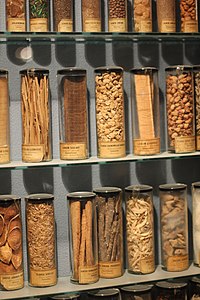
Photo from wikipedia
Dear Editor, Since the foundation of the World Health Organization (WHO), there are the so-called collaborating centers (CC), institutions of excellence in a given subject, designated by the CEO, in… Click to show full abstract
Dear Editor, Since the foundation of the World Health Organization (WHO), there are the so-called collaborating centers (CC), institutions of excellence in a given subject, designated by the CEO, in order to systematize and develop WHO programs, in addition to strategic support for the organization, guaranteeing the execution of activities, as well as generating institutional capacities in the countries [1]. The first CC was the Biological Department of the Statens Seruminstitute of Copenhagen in 1948, and currently there are 846 CC that make up the international CC network [2, 3]. After the WHO determined the importance of incorporating Traditional and Complementary Medicine (TCM), many countries responded by articulating their ancestral knowledge within their current health systems with the acceptance of TCM, due to low risk, cultural acceptance, and increasing numbers of chronic diseases, as well as the high costs of conventional health care [4, 5]. Thanks to this response, over 23 CC for TCM have been recognized, Peru (in 2019) being the first CC for TCM designated in Latin America [1] (Table 1). Not far from that reality, there has been a complementary medicine service since 1998 in Peru, inserted in one of the three major health systems of the country, Seguro Social de Salud (EsSalud), which is currently treating nearly one million patients in its three levels of health care (55 care units, 29 care centers, and 1 palliative care unit); thus, guaranteeing an integral attention with an intercultural approach to the patient, since they are evaluated considering biological, psycho-emotional, spiritual, and social aspects [6]. The CC for TCM in Peru has become a leader in South America in order to achieve the dialogue between TCM and the health systems, working together with public institutions, universities, and research institutes, in order to achieve health services with an integrative vision with intercultural relevance, health professionals specialized in TCIM (traditional, complementary, and integrative medicine), and sufficient levels of evidence that demonstrate costeffectiveness in the care of the patient, their family, and the community.
Journal Title: Complementary Medicine Research
Year Published: 2020
Link to full text (if available)
Share on Social Media: Sign Up to like & get
recommendations!